History
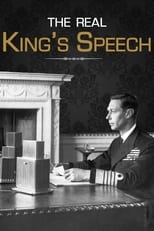
The Real King's Speech
February 23, 2011
The true story of King George VI's struggle to overcome his stammer, and the parts played in his battle with his disability by his speech therapist, brother, father and wife.
When God Spoke English: The Making of the King James Bible
February 21, 2011
Documentary telling the unexpected story of how arguably the greatest work of English prose ever written, the King James Bible, came into being. Author Adam Nicolson reveals why the making of this powerful book shares much in common with his experience of a very different national project - the Millennium Dome. The programme also delves into recently discovered 17th-century manuscripts, from the actual translation process itself, to show in rich detail what makes this Bible so good.

The Nightman Cometh
February 16, 2011
Yejiang / The Nightman Cometh features a cast of strange figures who slip between historical eras. Strewn with symbols of past and future, civilisation and wilderness, dream and reality, the work is laden with filmic, artistic and literary meanings but surrenders to none. An ancient warrior is seen wounded and forlorn after battle, in conflict about his path in life. Yang dramatises the clash between the hero's social role or 'mask', and the more authentic face of his instincts and aspirations. For Yang, the visible world presented in this work is not an objective one but rather the externalisation of internal sentiments.
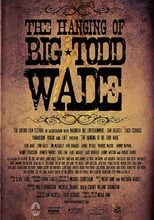
The Hanging of Big Todd Wade
February 12, 2011
After being found guilty of a crime he did not commit, “Big Todd” Wade is sent to the gallows.
Le dernier guillotiné
February 11, 2011
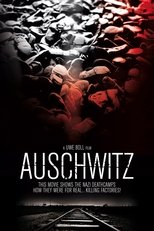
Auschwitz
February 11, 2011
Auschwitz is a hard-hitting war film which shows life as it really was at the death camp.
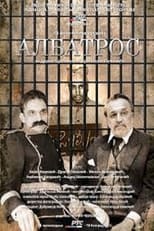
Albatross
February 10, 2011
Apart from showing the situation in Serbia at that time, the parallel course of the story follows the release of the young writer Nusic from prison and his arrival at the villa of King Milan, where he begs for pardon for the satirical song “Two Slaves” whose publication provoked the king’s anger.
Birth of the British Novel
February 7, 2011
Author Henry Hitchings explores the lives and works of Britain's radical and pioneering 18th-century novelists who, in just 80 years, established all the literary genres we recognise today. It was a golden age of creativity led by Daniel Defoe, Jonathan Swift, Henry Fielding, Laurence Sterne, Fanny Burney and William Godwin, amongst others. Robinson Crusoe, Gulliver's Travels, Tom Jones and Tristram Shandy are novels that still sparkle with audacity and innovation. On his journey through 18th-century fiction, Hitchings reveals how the novel was more than mere entertainment, it was also a subversive hand grenade that would change British society for the better. He travels from the homes of Britain's great and good to its lowliest prisons, meeting contemporary writers like Martin Amis, Will Self, Tom McCarthy and Jenny Uglow on the way.
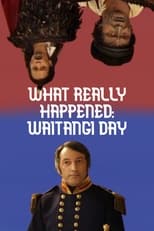
Waitangi Day: What Really Happened
February 6, 2011
This docudrama follows an imaginary news reporter who travels back in time to cover the days leading up to the Treaty of Waitangi's signing on 6 February 1840. Dropping the usual solemnity surrounding Aotearoa's founding document, it uses humour and asides to camera to evoke the chaos and motives behind the treaty. This clip features a confrontation between Hone Heke and representatives of the Crown.
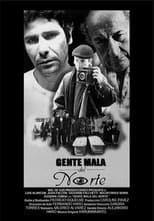
Gente Mala del Norte
February 5, 2011
In the Strait of Magellan, on 1923, an Irish photographer gradually discovers that the defendants in a bloody crime are innocent, and are only victims of intolerance and political expediency.
The Door Ajar
February 4, 2011
In August 1937, French dramatist and poet Antonin Artaud landed in Cobh and journeyed to Galway with the intention of returning the alleged staff of St. Patrick to its rightful owners, and, with their help, rediscovering some fundamental truths.

Jai Bholo Telangan
February 4, 2011
Film from Nimmala Shankar
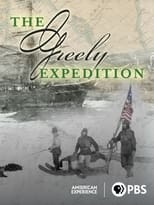
The Greely Expedition
January 31, 2011
From PBS and American Experience - Using scientific accounts, diaries, photographs and letters, this film reveals how poor planning, personality clashes, questionable decisions and pure bad luck conspired to turn a noble scientific mission into a human tragedy.

Hella W
January 28, 2011
The life of a heroine. The life and work of Hella Wuolijoki. A poet, spy and millionaire, she turned into an internationally acclaimed businesswoman, politician and playwright, who collaborated with Europe's leading writers such as Bertolt Brecht and Maxim Gorky, but faced the harshness of a changing world as the Finnish, Soviet and British secret services focus on her life, family and work.
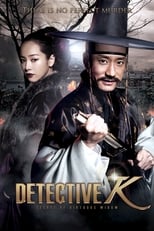
Detective K: Secret of Virtuous Widow
January 27, 2011
In 1782, King Jeong-jo of Joseon asks detective K to investigate a series of murders related to a case of corruption within the government.
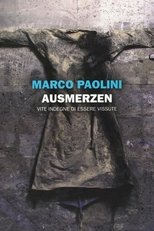
Ausmerzen
January 26, 2011
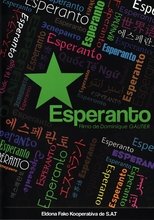
Esperanto
January 24, 2011
This film, directed by Dominique GAUTIER, takes the viewer on a worldwide excursion into the history and structure of the Esperanto language, introducing its present-day speakers. The words of these users of the language are reflective of a variety of activities and viewpoints, and in the film they are interwoven so as to reveal bit by bit how the utopia of its initiator, Ludwig ZAMENHOF, is concretised every day.
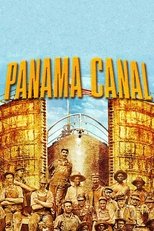
Panama Canal
January 24, 2011
On August 15th, 1914, the Panama Canal opened, connecting the world's two largest oceans and signaling America's emergence as a global superpower.
Bhopali
January 23, 2011
BHOPALI documents the experience of second generation children affected by the Union Carbide gas disaster of 1984, the worst industrial disaster in history, and subsequent contamination of groundwater by Union Carbide Corporation (an American company now owned by Dow Chemical, the second largest chemical company in the world). It follows several children as they and their families cope with the ongoing medical and social disaster, as well as their memories of that traumatizing night that shocked the world and changed Bhopal forever. Set against the backdrop of vehement protests for the 25th anniversary of the disaster, the Bhopalis continue to fight for justice, proving to be anything but victims. Set against a backdrop of high stakes activism, global politics, and human rights advocacy, this film explores the ongoing struggle for justice against Union Carbide, the American corporation responsible for the disaster. Featuring Noam Chomsky, Satinath Sarangi, and attorney Rajan Sharma.
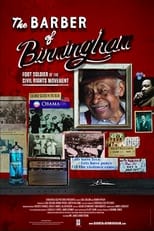
The Barber of Birmingham: Foot Soldier of the Civil Rights Movement
January 22, 2011
The film features 85-year-old Mr. Armstrong, an African American barber in Birmingham, Alabama, as he experiences the manifestation of an unimaginable dream: the election of the first African American president. This colorful and courageous activist of the Civil Rights era casts his vote, celebrates Obama's victory and proudly unfurls the American flag as he is inducted into the Foot Soldiers Hall of Fame. Mr. Armstrong links the magnitude of the present paradigm shift with challenges he faced in the past: from his sons' integration into an all white school to the Bloody Sunday march for voting rights. The documentary raises questions about democracy and patriotism in the face of adversity, and the vigilance and action required to ensure continued forward movement to end racial injustice.